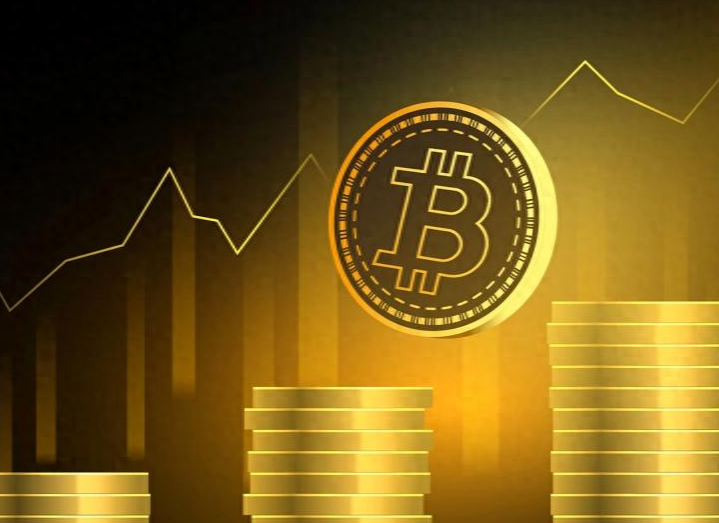Bitcoin Exceeds 100,000: Opportunity or Risk?
Advertisements
On December 5th, an electrifying milestone was reached in the world of cryptocurrency as Bitcoin's price surged past the monumental threshold of $100,000. This remarkable achievement does not come as a surprise to astute observers who have been tracking Bitcoin’s trajectory over the past year. Since the beginning of this year, Bitcoin's value has skyrocketed to an astonishing 150% increase, far outpacing traditional assets, including gold, which, despite a commendable rise of over 20%, pales in comparison.
The growth in Bitcoin's value is not merely a flash in the pan. In the span of just one month, from November 4th to December 5th, Bitcoin witnessed a staggering 50% increase in its price, captivating not only investors within the cryptocurrency ecosystem but also piquing the interest of those who previously paid little attention to digital currencies. The media buzz and the headlines questioning how high Bitcoin can soar — could it reach $200,000, or even a million dollars? — have prompted regular investors to ponder whether they should jump on what they perceive as the last chance to ride this powerful wave of wealth generation.
However, before diving into the volatile waters of digital currency investment, it is crucial to underscore the importance of comprehensive understanding. Potential investors should arm themselves with knowledge regarding the underlying asset, alongside a nuanced understanding of the associated risks and rewards. Such diligence is particularly pertinent in the realm of Bitcoin, which, since its inception by the pseudonymous Satoshi Nakamoto in 2009, has experienced a rollercoaster ride unlike any other investment vehicle.
Bitcoin, a cryptocurrency that operates on blockchain technology, started with a value that was nearly negligible. Its meteoric rise to over $100,000 per coin has led many to recognize it as one of the best-performing assets globally. Yet, from its birth, Bitcoin has been embroiled in controversy. Many skeptics have dismissed it as a scam or a Ponzi scheme, particularly following its explosive growth in 2017, when its price increased from around $1,000 at the start of the year to an eye-popping $20,000 by December, raising eyebrows and sparking rampant speculation.

Nonetheless, despite the skepticism surrounding its legitimacy, Bitcoin possesses an inherent value derived from its scarcity. Unlike traditional fiat currencies that can be printed at will by governments, Bitcoin's supply is limited due to its designed scarcity — only 21 million Bitcoins will ever be mined. This fundamental characteristic forms the backbone of its perceived value and fuels discussions around whether it could ever replace national currencies in challenging their status as the primary medium of exchange.
The price movements of Bitcoin are characterized by extreme volatility, exhibiting dramatic spikes and plunges. Price swings of up to 10% in a single day are not uncommon, followed by precipitous declines of 20% the next. Such volatility instills both fear and excitement among investors. For every thrill of seeing a substantial increase in value, there is the risk of witnessing staggering losses, as seen by countless investors during past market corrections, where massive liquidations — sometimes involving hundreds of thousands of people and amounts in the millions of dollars — occurred in mere moments.
A prominent factor contributing to this volatility is the widespread use of leverage in Bitcoin trading, which acts as a double-edged sword. While it can potentially magnify gains, it can simultaneously wipe out capital, leading to total losses. Even as Bitcoin breeched the $100,000 mark, the market remains unpredictable, sustained by the same volatility that attracted speculation since Bitcoin's inception.
The overarching challenge Bitcoin faces is a lack of regulatory support from nation-states, which have maintained strict control over digital currencies. Take China, for example, which has adopted a cautious stance toward Bitcoin, urging its citizens to invest wisely and sparingly. As institutional investment in cryptocurrency grows, a dynamic shift is underway, integrating more traditional financial players into the crypto marketplace. However, state endorsement has not lessened the gravitational forces of price volatility; it merely provides an additional layer of complexity and speculation.
Investing in Bitcoin is not a suitable venture for the average individual investor, especially those considering leveraged positions, which are fraught with peril. It is vital not to be lured by overly optimistic predictions from self-proclaimed experts. When prices are high, the temptation to expect further growth can lead to reckless decision-making, while downturns can induce panic and emotional responses that cloud judgment.
In fact, Bitcoin has demonstrated price volatility that far exceeds that of stock markets like the A-shares in China. Its characteristics make it a high-risk asset, one that can create overnight millionaires just as easily as it can render investments worthless in minutes. For the general public, Bitcoin might seem like an irresistible opportunity for wealth creation, but it is essential to recognize the substantial risks involved. Professional investors possess robust resources, advanced skills, and established risk management systems, putting them in a far superior position compared to the average investor.
Given the numerous challenges — from insufficient knowledge to lack of experience — that average investors face when contemplating Bitcoin, it is advisable to maintain a distance from this volatile asset class. It is crucial to avoid overconfidence stemming from temporary greed or impulse, which may lead to reckless miscalculations regarding one’s own capacity to navigate the complexities of Bitcoin investment and make sound decisions.
As individuals stand at the crossroads of deciding whether to invest in Bitcoin, it is imperative to approach this decision with prudence, clarity, and rationality. They should carefully weigh the pros and cons of such an investment, resisting the urge to leap without sufficient understanding and preparation for the vast uncertainties and high risks that encompass this domain. Caution and well-informed decision-making are pivotal as investors venture into the intricate and volatile world of Bitcoin.
Leave a Comments